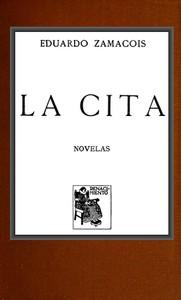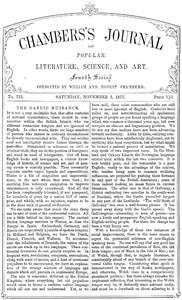Read this ebook for free! No credit card needed, absolutely nothing to pay.
Words: 47263 in 6 pages
This is an ebook sharing website. You can read the uploaded ebooks for free here. No credit cards needed, nothing to pay. If you want to own a digital copy of the ebook, or want to read offline with your favorite ebook-reader, then you can choose to buy and download the ebook.


: Beautiful Birds by Selous Edmund Astley Hubert D Illustrator - Birds Juvenile literature; Birds of paradise (Birds) Juvenile literature
"We shall never do that," said the proud Birds of Paradise. "We shall stay down on earth and be kings and 'prima donnas' amongst the other birds." So the Phenix let them out, and they flew down through the warm summer sky, looking like soft suns or trembling stars or colours out of the sunrise or sunset, they were so beautiful.
Then the birds of earth flew around them and did them homage, and, when they sang, the nightingale stood silent and hid her head for shame, and would never sing in the daytime any more, but only at night when the beautiful strangers were asleep. That is why the nightingale sings by night and not by day--only since the Birds of Paradise have lost their voice she does sing in the daytime sometimes, just a little.
So the Birds of Paradise were kings and "prima donnas" amongst the birds of earth, and they were happy--for a time. They were not quite so happy after a little while, for they got tired of hearing the birds praise them, and, wherever they looked, they saw nothing to give them pleasure. The earth, indeed, was beautiful, but they remembered Paradise, and that made it seem ugly. There was nothing for them to see that was worth the seeing, or to hear that was worth the listening to, except their own beauty and their own song. But that reminded them of Paradise, and they could not bear to be reminded of it now that they had lost it for ever. In fact they were miserable, and it was not long before they were all fluttering outside the gates of Paradise, and begging the Phenix to let them in. But the Phenix said, "No, I cannot. I warned you that the gates of Paradise could only be passed twice, once in and once out, and then no more. I tried to keep you from going, but you chose to go, and now you must stay outside. You can never enter Paradise again." "If we cannot enter it," said the poor Birds of Paradise, "let us at least forget it. Take away our beautiful voices, so that, when we sing, we shall not think of all the joys we have lost. Let our song be no more than the lark's or the nightingale's, or make us only able to twitter, and not sing at all. Then we can listen to the lark and the nightingale, and perhaps, in time, we may grow to admire them. As it is, we must either sing or be silent. We do not like to sit silent, and when we sing we think only of Paradise." "Yes," said the Phenix, "I will take your voice, your beautiful voice of song." So he took it, and that is why the Birds of Paradise never sing at all now, not even as the lark and the nightingale sing.
Now, the Birds of Paradise that live on the earth to-day do not live all over it, as they used to do in those old days when they could hear the lark and the nightingale. It is only a very small part of the world that they live in now--small, I mean, compared to the rest of it--and there are no larks or nightingales there. I will tell you where it is. Far away over the deep sea, farther than Africa, farther than India, farther even than Burma or Siam, there are a number of great islands and small islands and middling-sized islands, which lie between Asia and Australia, and all of these together are called the Malay Archipelago. The largest of all these islands, and the one that is farthest away too, is called New Guinea, and it is a very large island indeed, the largest, in fact, in the world after Australia, which, as you know, is so large that we call it a continent. Round about this great island of New Guinea, and not very far from its shores, there are some other islands which are quite tiny in comparison, and it is here, just in this one great island and in these few small islands near it, that the Birds of Paradise live. They do not live in any of the other islands of the Malay Archipelago, but only just here in the ones that are farthest away of all.
It would take you weeks to go in a steamer to where the Birds of Paradise live, and if you were to go, not in a steamer but in a ship with sails, it would take you longer still. But when you got there you would not see the Birds of Paradise flying all about, as soon as you went ashore out of the ship or the steamer, as you would see sparrows here. Oh no, Birds of Paradise are not so common as that, even in their own country. They do not come into the towns, like sparrows, either, but live in the great forests where people do not often go, and even when one does go into them, it is difficult to see them amongst the great tall trees and the broad-fronded ferns and the long, hanging creepers that make a tangle from one tree to another.
Other flowers are golden like the sun and grow all together in clusters, whilst others, again, grow on the branches of trees and hang down from them by long stalks which are like threads, each thread-stalk strung with flowers, as a thread is strung with beads. Only these flower-beads are as large as sunflowers, with colours varying from orange to red, and with beautiful, deep, purple-red spots upon them.
But if you had wings like the Birds of Paradise, and could fly over the tops of the trees that make the forest, and look down into a leafy meadow instead of up into a leafy sky, then you would see the most gloriously beautiful flowers growing in that meadow, just as the daisies and buttercups grow in the meadows that you run over, here. For flowers love the light of the sun, and they struggle up into it through the leaves that keep it out. To them the leaves are not as the sky, but as the clouds that shut the sky out, and as they are clouds that will never roll away , the only thing for them to do is to climb up to them and pierce them, and see the sky, with the sun shining in it, on the other side. So whilst a few flowers stay in the shade below, most of them grow and struggle up into the light and air above, and they are all in such a hurry to get there that every one tries to grow faster than all the others. Ah! what a race it is, a race to reach the sun. You have heard of all sorts of races, and some, perhaps, you have seen; running-races, races in sacks, boat-races, horse-races , but you never either saw or heard of a fairer, lovelier, more delicate race than a race of flowers to reach the sun. Think of it, all over those great, wide, far-stretching forests, forests stretching away like the sea, and only bounded by the sea! Think of all the millions of flowers there must be in them, with all their delicate shapes, and rich, fragrant scents and glorious colours, and then think of them all growing up together, each trying to be the first to see the sun. So eager they all are, but so gentle. There is no pushing, nothing rude or rough. But as the leaves grow thinner, and the light shines more and more through them, they tremble and sigh with joy, and one says to another, "We are getting nearer--nearer. I can see him almost; we shall soon be bathed in his light." And so they all grow and grow till at last they gleam softly through the soft leaves, and see the beautiful deep blue sky and the glorious, golden sun. Yes, that is a lovely race indeed--as anything to do with flowers is lovely--and it is a race upwards, to the sky and to the sun. Not all races are of that kind.
It is in forests like those that the Birds of Paradise live; and now that we know something about where they live, we will find out something about them.
The Great Bird of Paradise
So now you know what kind of birds the Birds of Paradise are, and how very beautiful they are, and you know how gloriously beautiful the Great Bird of Paradise is, and how it is killed and not allowed to live and be happy, just because it is so beautiful. But now these Great Birds of Paradise live only in some quite small islands and just in one part of one large one, and although there may be a good many of them where they do live, yet if they are always being killed in that way, very soon there will be no more of them left. Then there will be no more Great Birds of Paradise in the world--for they do not live outside those islands--and when they are once gone they can never, never come again.
The Red Bird of Paradise
Then there is another very beautiful Bird of Paradise which is called the Red Bird of Paradise. It is no use trying to find out whether he or the one I have just been telling you about is the most beautiful, because if somebody were to think that one were, somebody else would be sure to have a different opinion. But now I will tell you what this Red Bird of Paradise is like, and then you will know how beautiful to think him. You know those lovely plumes that I told you about, that the Great Bird of Paradise has growing from both his sides, under the wings, and how he lifts up his wings and shoots them right up into the air, so that they fall all over him, like two most beautiful fountains that meet in the air and mingle their waters together. Now the Red Bird of Paradise has those plumes--those feather-fountains--too, and he can shoot them up into the air and let them fall all over him, and look out from amongst them as they bend and wave, and think "How lovely I am!" just the same as the Great Bird of Paradise can. They are not so long, it is true, but then they are very thick, and of a most glorious crimson colour--such a colour as you see, sometimes, in the western sky, when the sun is flushing it, just before he sinks down for the night. People talk about a sky like that and call it a glorious sunset when they see it in Switzerland. One can see it here, too, if one likes, but it is not usual to talk about it or even to look at it, unless one is in Switzerland . Fancy a bird that looks out of a crimson sunset of feathers--crimson, but with beautiful white tips to them! Crimson and white, that is almost more splendid than orange-gold and mauvy-brown; unless you like orange-gold and mauvy-brown better--it is all a matter of taste.
Free books android app tbrJar TBR JAR Read Free books online gutenberg
More posts by @FreeBooks

: The New England Historical & Genealogical Register Vol. 1 No. 3 July 1847 by Various Cogswell William Editor - New England Historic Genealogical Society Periodicals; New England History Periodicals; New England Genealogy Periodicals; Genealogy Periodicals








